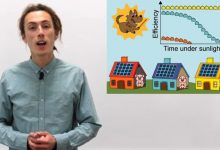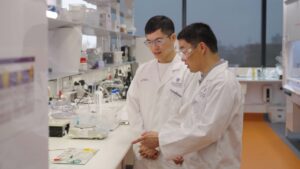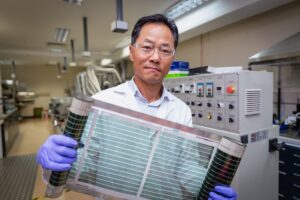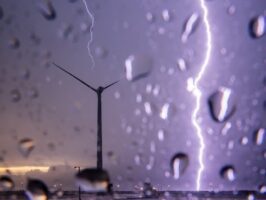The University of New South Wales has delivered a short and sweet reminder of its world-leading role in solar research and development, using three pigs, three home solar systems, and just 180 seconds.
The fairy-tale presentation, which you can watch in the video below, was submitted as part of the UNSW 3 Minute Thesis competition, an annual event that gives PhD students just three minutes to explain their doctoral research and its importance to a panel of judges.
(Ordinarily, this is done live in front of an audience of hundreds, but in 2020, students were asked to film their presentation and send it in, to comply with Covid-19 restrictions.)
The video, by Bruno Vicari Stefani from the Faculty of Engineering, was awarded the competition’s top prize of $3,000 for its clever reconstruction of the tale of the three little pigs to explain his thesis for developing highly efficient solar energy cells using low-cost materials.
In the three-minute presentation, Stefani said that trying to solve the problem of sunlight damaging the efficiency of solar cells at the same time as powering them was at the heart of his research.
Enter the Three Little Pigs. As Stefani tells it, “it’s 2020, they all have brick houses now, they don’t have to worry about the Big Bad Wolf anymore. Instead, they need to worry about climate change and their house’s energy supply, because now they’re studying and working from home, and need to attend many online meetings with their colleagues.”
In a statement on Thursday, the UNSW said the judges were captivated by the innovative way Stefani explained how combining hydrogen with low-cost silicon in solar panels can prevent them from losing efficiency over time.
“I am so happy to win and I want to thank the University, but also the other competitors for raising the bar so high that I had to put in a lot of work,” Stefani said. “I also want to thank my supervisor Brett Hallam for all the support and opportunities he has given me throughout my PhD.”
Stefani will now represent UNSW in the Asia Pacific competition run by the University of Queensland, as well as the international Universitas 21 final – another virtual event where judges watch video presentations.
We wish him all the best and hope to see Stefani continue on to join the list of solar luminaries to come from the UNSW, including Martin Green, Stuart Wenham and Zhengrong Shi.










